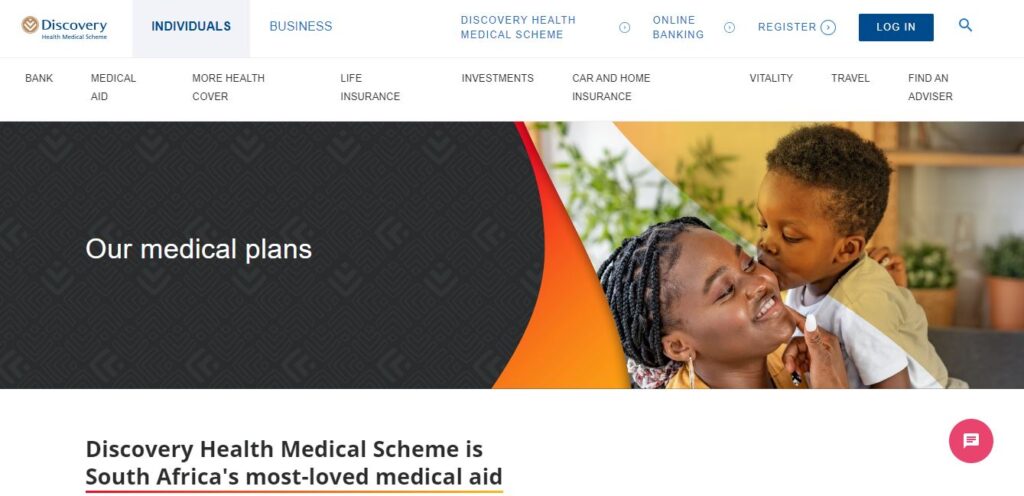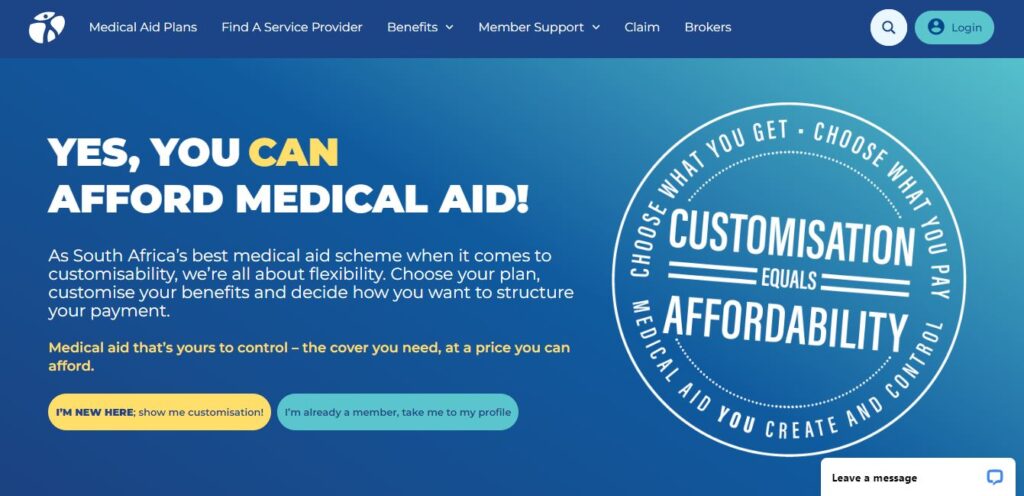Health insurance is very important in South Africa because it helps cover the cost of medical care when you get sick or injured. The country has both public and private healthcare, but private healthcare can be expensive. Having health insurance ensures that you can get the medical treatment you need without worrying about high bills.
Some of the key benefits of health insurance include:
- Access to quality healthcare: With health insurance, you can choose from a range of doctors and hospitals, often with faster service and better care.
- Financial protection: Health insurance helps protect you from high medical costs, especially for emergencies or major treatments.
- Peace of mind: Knowing that you are covered for medical expenses reduces stress and allows you to focus on getting better.
In South Africa, there are many different health insurance options to choose from. These include basic hospital plans, more comprehensive medical aid plans, and gap cover, which helps cover the difference between what medical insurance pays and the actual medical costs. You can find a plan that fits your needs and budget.
What is Health Insurance and How It Works?
Health insurance is a contract between an individual and a health insurance provider (such as a medical aid or insurance company), where the individual agrees to pay premiums in exchange for coverage that helps pay for medical expenses. The primary goal of health insurance is to reduce the financial burden of unexpected medical costs, making healthcare more affordable.
Here’s how it generally works:
- Premiums: The individual or employer pays a monthly or annual premium to the health insurance provider.
- Deductibles and Co-pays: In some cases, before the insurance company covers the medical costs, the insured may need to pay a deductible (an upfront amount) or a co-pay (a fixed cost for a medical service, like a doctor’s visit).
- Coverage: Health insurance typically covers a range of services, including hospital stays, doctor’s visits, surgeries, and sometimes prescription drugs.
- Reimbursement: After the individual receives medical care, the insurance company reimburses the healthcare provider (or the individual, depending on the plan) for covered services.
There are various types of health insurance plans that cater to different healthcare needs, each offering varying levels of coverage.
Different Types of Health Insurance Plans
- Hospital Plans
- Definition: Hospital plans cover the costs of hospitalization, including surgery, hospital accommodation, and essential treatments.
- What It Covers: Hospitalization-related expenses such as emergency care, surgical procedures, and treatment during hospital stays.
- Limitations: Hospital plans typically do not cover outpatient services (e.g., doctor’s consultations, chronic medication, or preventative care).
- Ideal For: People who want to minimize healthcare costs but still want to be covered for emergencies and hospital treatment.
- Comprehensive Medical Aid Plans
- Definition: Comprehensive medical aid plans offer a wider range of coverage, including both hospital and outpatient services.
- What It Covers: In addition to hospital costs, it also covers consultations with specialists and general practitioners, chronic illness treatment, dental and optical care, medication, and preventative care.
- Limitations: These plans tend to be more expensive due to the broader coverage, and there might be certain exclusions or limits on specific services.
- Ideal For: Individuals or families who need comprehensive healthcare coverage for both emergency and routine medical needs.
- Gap Cover
- Definition: Gap cover is a supplementary insurance plan that helps to cover the difference between what your medical aid plan pays and what your healthcare provider charges.
- What It Covers: It typically covers the shortfall between the medical aid benefits and the actual costs of medical treatments, especially in cases where medical providers charge above the medical aid rate.
- Limitations: Gap cover cannot be used to pay for items that are not covered by the original health insurance policy, and it may have limits on how much it will cover per treatment or year.
- Ideal For: People who already have a medical aid plan but want additional coverage for medical expenses that exceed their policy’s benefits.
Why Health Insurance is Important in South Africa
Health insurance plays a crucial role in ensuring access to quality healthcare and providing financial protection in case of medical emergencies. In South Africa, where the healthcare system faces challenges, having health insurance is especially important. Here’s why:
1. High Medical Costs and the Importance of Protecting Against Them
Medical costs in South Africa can be exorbitant, particularly for private healthcare services. Hospital stays, specialist consultations, surgeries, and emergency care can quickly add up to significant amounts, placing a heavy financial burden on individuals and families.
- Private healthcare: While private hospitals and clinics offer high-quality services, they often come with high fees, including co-payments, deductibles, and out-of-pocket expenses. Without health insurance, these costs can be financially overwhelming.
- Chronic conditions: For individuals with chronic illnesses, ongoing medical expenses for treatment, medications, and regular doctor visits can quickly escalate. Without proper insurance coverage, individuals may struggle to afford the long-term care they need.
- Protection against unexpected expenses: Health insurance provides a safety net, ensuring that medical expenses are covered in the event of illness or injury, reducing the risk of large out-of-pocket costs.
2. The South African Healthcare System (Public vs. Private)
South Africa has a dual healthcare system, consisting of both public and private sectors. However, these two systems differ significantly in terms of access, quality, and cost:
- Public Healthcare: Public healthcare in South Africa is funded by the government and provides services to all citizens, primarily through state-run hospitals and clinics. While these facilities provide essential healthcare services, they are often overburdened with long waiting times, limited resources, and a shortage of medical staff. In addition, many public facilities lack the advanced equipment and specialists available in the private sector.
- Private Healthcare: Private healthcare is generally regarded as providing higher-quality services, including quicker access to healthcare professionals, more comfortable facilities, and advanced treatments. However, it comes at a higher cost, which is often not affordable for many individuals without insurance. Private hospitals and specialists are significantly more expensive than public healthcare services.
The stark contrast between the public and private healthcare systems in South Africa means that, while public healthcare may be available to everyone, those who can afford private medical insurance often seek it out for quicker, more comprehensive, and better-quality care.
3. The Growing Need for Private Medical Cover
The demand for private medical cover in South Africa has been steadily increasing for several reasons:
- Increased healthcare costs: As mentioned earlier, healthcare costs in South Africa are rising, especially in the private sector. With inflation and the increasing costs of medical treatments and hospital stays, private health insurance has become an essential way to manage these costs.
- Access to better healthcare: The growing preference for private healthcare is driven by the desire for shorter waiting times, access to specialists, and better overall patient care. Many individuals prefer private health insurance to avoid long queues and to have access to a broader range of medical treatments.
- Limited public healthcare resources: Public healthcare facilities are often underfunded and overwhelmed with patients, leading to long waiting periods for treatments, surgeries, and consultations. This limitation makes private health insurance increasingly attractive to those who can afford it.
- Changing demographics: South Africa’s middle and upper classes, who can afford private medical cover, are growing in number. These individuals are increasingly seeking comprehensive medical aid plans to ensure access to the best healthcare options for themselves and their families.
- Job benefits and employer contributions: Many employers offer private medical cover as part of their employee benefits package, making it more accessible to employees. The availability of such benefits has made private healthcare more popular, especially in the corporate sector.
Top Health Insurance Providers in South Africa
1. Discovery Health

Discovery Health is one of the largest health insurance providers in South Africa, offering a range of plans designed to meet different healthcare needs.
Discovery Health offers different types of medical aid plans, including:
- Hospital Plans: These plans cover the costs of hospital stays and emergency medical care.
- Comprehensive Plans: These plans provide broader coverage, including doctor visits, hospital stays, medicine, and specialist treatments.
- Day-to-Day Plans: These plans cover everyday medical expenses like doctor’s consultations, medicine, and other outpatient services.
Key Features and Benefits
- Wide Network of Healthcare Providers: Discovery Health has a large network of doctors, hospitals, and clinics, giving you access to quality healthcare.
- Comprehensive Coverage: Plans offer coverage for hospital care, medicine, surgeries, and more, depending on the plan you choose.
- Extra Benefits: Some plans offer additional perks like discounts on gym memberships, wellness programs, and rewards for healthy living.
- Cashback on Unused Benefits: If you don’t use all your benefits for a year, Discovery Health may offer cashback or rollover unused funds for future use.
- Chronic Illness Coverage: Discovery Health covers treatment for certain chronic illnesses, ensuring long-term care.
In simple terms, Discovery Health gives you flexible health insurance plans that cover hospital care, doctor visits, and medicine, along with extra benefits to help you live healthier.
2. Momentum Health
Momentum Health is a leading health insurance provider in South Africa that offers a range of plans to suit different needs and budgets.
Momentum Health provides various medical aid plans, such as:
- Hospital Plans: These cover you for hospital stays and related treatments, such as surgeries and emergencies. They don’t include day-to-day medical expenses like GP visits or medication.
- Comprehensive Plans: These cover both hospital costs and day-to-day medical expenses, like doctor’s visits, medication, and specialist consultations.
- Customizable Plans: Momentum allows you to add optional benefits like maternity care, chronic condition coverage, or wellness programs to suit your lifestyle.
Key Features and Benefits
- Flexibility: You can choose a plan that fits your needs, from basic hospital cover to full comprehensive care.
- Rewards Program: Momentum includes wellness rewards like Multiply, which gives discounts on gym memberships, flights, and shopping when you lead a healthy lifestyle.
- Chronic Care: Some plans include coverage for chronic conditions like diabetes or asthma.
- Emergency Care: Most plans offer coverage for accidents and emergencies, ensuring you’re protected when you need it most.
- Access to Specialists: With higher-tier plans, you can see specialists without worrying about high costs.
Momentum Health is a great option for those looking for flexibility and value in their health insurance. Whether you need basic cover or full medical aid, they offer something for everyone.
3. FedHealth

FedHealth is a well-known health insurance provider in South Africa that offers different plans to suit people’s healthcare needs and budgets.
FedHealth provides a variety of plans, including:
- Hospital Plans: These cover only hospital stays and treatments, such as surgeries or emergencies.
- Comprehensive Plans: These include hospital cover plus day-to-day medical expenses, like doctor visits, medication, and dental care.
- Customizable Options: Some plans let you pick and choose what you want to be covered for, giving you more control over your costs.
Key Features and Benefits
- Flexible Options: You can adjust your plan to suit your budget and needs.
- Unlimited Hospital Cover: For emergencies or planned procedures, you’re covered for hospital costs.
- Wellness Benefits: Access to wellness programs, such as free health checks.
- Chronic Condition Support: Cover for long-term illnesses, like diabetes or asthma.
- Family-Friendly Plans: Affordable options for families, including maternity benefits and child wellness.
FedHealth aims to make healthcare accessible and affordable, offering plans that give you peace of mind when it comes to your medical needs.
4. Bonitas Medical Aid

Bonitas is a popular medical aid provider in South Africa that offers a variety of plans to suit different healthcare needs and budgets. These plans include options for:
- Hospital Coverage: Covers your expenses if you’re admitted to a hospital.
- Comprehensive Plans: Includes both hospital stays and day-to-day medical needs like doctor visits and medication.
- Network Options: Plans that are more affordable if you use specific hospitals and doctors within their network.
Key Features and Benefits
- Wide Range of Choices: Plans to suit young professionals, families, and seniors.
- Preventative Care: Covers things like vaccinations, screenings, and check-ups to keep you healthy.
- Chronic Illness Cover: Helps with ongoing treatment for conditions like diabetes or asthma.
- Affordable Options: They offer budget-friendly plans that still provide essential coverage.
- Wellness Programs: Access to programs that promote healthier living, such as fitness rewards or diet advice.
In short, Bonitas helps people choose a plan that meets their medical needs and financial situation, offering peace of mind for unexpected health issues.
5. GEMS (Government Employees Medical Scheme)

GEMS provides health insurance plans specifically designed for South African government employees and their families. They offer several options to suit different healthcare needs and budgets. Each plan covers essential medical services, such as doctor visits, hospital stays, chronic medication, and more.
The plans range from:
- Basic Plans: Affordable options for those who need essential healthcare services like hospital care and doctor consultations.
- Comprehensive Plans: Higher-cost options with broader coverage, including specialist care, dental, and optical benefits.
Key Features and Benefits
- Affordable for Government Employees: Plans are tailored to fit the budgets of government workers, making quality healthcare more accessible.
- Wide Coverage: Includes hospital stays, emergency care, chronic illness treatment, and preventative care.
- Family-Friendly: Options to include dependents, such as children and spouses.
- Extensive Network: Access to a large network of doctors, specialists, and hospitals.
- Customizable Plans: Allows members to choose a plan that fits their specific healthcare needs.
In short, GEMS is a healthcare scheme that helps government employees and their families get quality medical care at a cost that works for them.
Comparison of Health Insurance Providers’ Offerings
In South Africa, there are several health insurance providers offering a variety of plans to suit different needs and budgets. Let’s take a closer look at what some of the top providers offer:
1. Discovery Health
- Plans: Discovery offers a range of options, from basic hospital plans to comprehensive cover.
- Key Features: Rewards programs like Vitality, which encourages healthy living, and extensive networks of hospitals and doctors.
- Best For: Individuals or families who want access to both quality care and wellness incentives.
2. Momentum Health
- Plans: Offers customizable options where you can mix and match benefits.
- Key Features: Wellness rewards through the Multiply program and flexible savings options for out-of-hospital costs.
- Best For: People who prefer plans they can tailor to their unique needs.
3. Bonitas
- Plans: Bonitas provides a range of affordable plans, including hospital-only options and comprehensive medical aids.
- Key Features: A focus on affordability with access to quality healthcare providers.
- Best For: Families looking for budget-friendly options without compromising on essential care.
4. FedHealth
- Plans: Offers plans that allow unused savings to roll over to the next year.
- Key Features: Unique flexibility, especially for outpatient care and family health benefits.
- Best For: Those who want a plan with long-term savings benefits.
5. GEMS (Government Employees Medical Scheme)
- Plans: Tailored specifically for government employees.
- Key Features: Affordable rates with broad coverage for public service workers.
- Best For: Government employees and their families.
Which Provider Should You Choose?
When comparing these providers, think about your specific needs:
- If you want wellness rewards, Discovery Health and Momentum Health stand out.
- For affordability, Bonitas and GEMS are great options.
- If you want flexibility in how you use your benefits, FedHealth is worth considering.
Each provider has its strengths, so it’s important to review their offerings and choose one that matches your healthcare needs and budget.
How Much Does Health Insurance Cost in South Africa?
Health insurance costs in South Africa can vary greatly depending on the type of plan you choose and your personal circumstances. Let’s break it down to make it easier to understand.
1. Average Costs for Different Types of Health Insurance Plans
- Hospital Plans: These are the most affordable. They cover you for major events like hospital stays and emergencies. Prices start at about R1,000 to R2,500 per month, depending on the provider and the level of benefits.
- Comprehensive Medical Aid Plans: These plans cover a lot more, including doctor visits, chronic medication, and preventative care. They are more expensive, ranging from R2,500 to R8,000 per month.
- Gap Cover: This is an additional plan that helps pay for the difference between what your medical aid covers and the actual costs of medical procedures. It usually costs around R300 to R600 per month.
2. Factors That Affect Your Premiums
The cost of your health insurance depends on several factors, including:
- Your Age: Older people often pay higher premiums because they are more likely to need medical care.
- Your Health: If you have existing health conditions, you might need a more comprehensive plan, which costs more.
- Type of Coverage: The more benefits and services your plan offers (like dental, maternity, or chronic care), the higher your premium will be.
- Number of Dependents: Adding family members, like a spouse or children, increases your monthly costs.
- Lifestyle Choices: Smokers or people with high-risk lifestyles may face higher premiums.
- Income-Based Plans: Some medical schemes, like GEMS (for government employees), calculate premiums based on your salary.
3. Options for Affordable Coverage
If you’re worried about costs, here are some tips to find affordable health insurance:
- Basic Hospital Plans: Start with a hospital plan if your budget is tight. It will at least cover you for emergencies.
- Consider Income-Based Plans: Some providers offer plans where your premium is based on your income level.
- Join a Network Plan: Many insurers offer network options that limit you to specific doctors or hospitals, which can lower costs.
- Gap Cover: If you already have a medical aid plan but can’t afford a comprehensive one, adding gap cover can help you avoid large out-of-pocket expenses.
- Compare Providers: Shop around to find a plan that suits your needs and budget. Many companies offer tools to help you compare plans.
- Employer Benefits: Check if your employer offers group medical aid. This is often cheaper than individual plans.
Health insurance in South Africa ranges from basic hospital plans to comprehensive medical aid, with costs depending on your age, health, and coverage needs. If you’re on a tight budget, there are ways to save money, like starting with a basic plan or choosing income-based options. Comparing different plans is key to finding the right coverage at a price you can afford.
What to Look for in a Health Insurance Policy
Choosing the right health insurance policy can be overwhelming, but knowing what to look for can make the process easier. Here are some key things to keep in mind:
1. Understanding Exclusions and Limitations
Not everything is covered by health insurance policies, so it’s important to know what’s excluded.
- Some policies might not cover specific treatments, like cosmetic surgery or alternative therapies.
- Others may limit how much they will pay for certain conditions or treatments.
Make sure you understand what is and isn’t included before you sign up.
2. Assessing the Policy’s Terms and Conditions
The terms and conditions explain how the policy works.
- Check if there’s a waiting period before you can claim certain benefits.
- Look at how claims are paid, do you need to pay upfront and get reimbursed, or does the insurance company pay directly?
- Confirm if there are limits on how much you can claim in a year or for specific treatments.
3. Importance of Reading the Fine Print
The fine print often contains crucial details that can be easy to miss.
- For example, some policies might only cover treatment at specific hospitals or doctors.
- Others might require you to get pre-approval for certain procedures.
Taking the time to read the fine print can help you avoid surprises later.
4. Additional Features to Look For
Some health insurance policies include extra benefits that can make a big difference:
- Maternity cover: This is important if you’re planning to have children, as it can cover pregnancy and childbirth costs.
- Dental and optical cover: These benefits help pay for visits to the dentist or optometrist, including braces, fillings, and glasses.
- Wellness programs: Some policies offer perks like gym discounts or access to health screenings to help you stay healthy.
When choosing health insurance, always check for exclusions, understand the terms, read the fine print, and look for added benefits that suit your needs. Taking these steps will ensure you pick a policy that provides the coverage you need without any hidden surprises.
How to Save on Health Insurance in South Africa
Health insurance can be expensive, but there are smart ways to lower your costs while still getting the coverage you need. Here are some practical tips:
1. Reduce Premiums Without Losing Coverage
- Compare Plans: Shop around and compare different health insurance providers. Look for a plan that fits your budget and healthcare needs without unnecessary extras.
- Choose the Right Plan: If you’re healthy and don’t need extensive cover, a hospital plan might be more affordable than a comprehensive plan.
- Higher Excess or Deductible: Opting for a plan with a higher excess (the amount you pay out-of-pocket before insurance kicks in) can lower your monthly premiums.
- Family Plans: If you have a family, consider a family plan instead of individual plans for each member, as it can save money.
- Wellness Discounts: Many providers offer discounts or rewards if you join wellness programs or maintain a healthy lifestyle.
2. Use Gap Cover to Bridge the Gap
Even with health insurance, there are often shortfalls between what your medical aid covers and what healthcare providers charge. This is where gap cover can help.
- What is Gap Cover? It’s a separate policy that covers the difference between what your medical aid pays and the actual cost of treatments.
- How It Saves Money: Without gap cover, you might have to pay these differences out-of-pocket, which can be expensive. Adding gap cover to your plan is usually cheaper than paying these unexpected costs.
3. Take Advantage of Health Savings Accounts (HSAs) and Tax Benefits
- Health Savings Accounts (HSA): Some health insurance providers offer savings accounts where you can save for medical expenses. These accounts allow you to set aside money for things like doctor visits or medication, often with tax advantages.
- Tax Deductions: In South Africa, medical aid contributions may qualify for tax credits, which reduce your overall tax bill. Keep track of your medical expenses and claim them during tax season to save money.
Saving on health insurance in South Africa doesn’t mean compromising on quality. By choosing the right plan, adding gap cover, and making use of tax benefits, you can keep your healthcare costs under control while ensuring you and your family are well-covered.
Conclusion
Health insurance is an important part of managing your health and finances. It helps protect you from high medical costs and ensures you can get the care you need without worrying about money. In South Africa, where medical expenses can be very high, having health insurance gives you peace of mind and access to better healthcare.
When choosing health insurance, it’s a good idea to compare different plans. Look at what each one offers, how much it costs, and how it fits your needs. Everyone is different, so the right plan for you depends on your budget, your health needs, and whether you want basic hospital cover or more comprehensive care.
Take your time to understand your options and pick a plan that works best for you and your family. With the right health insurance, you’ll be prepared for life’s unexpected health challenges and able to focus on living well.


